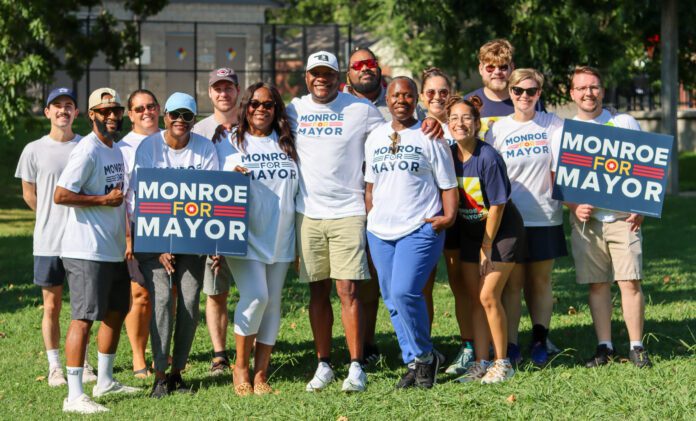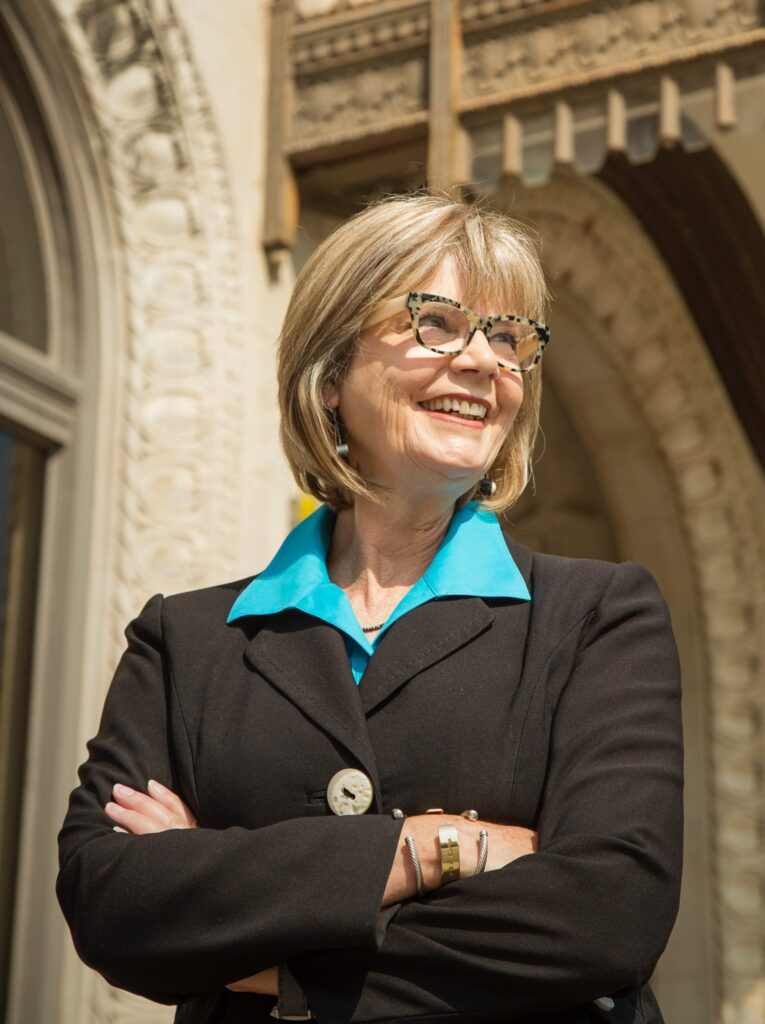
Democrats Monroe Nichols and Karen Keith, who emerged from the Aug. 27 mayoral primary as Tulsa’s top two choices, face each other again during a run-off on Nov. 5.
“There is not a more consequential position in elected office when it comes to impacting people’s lives in a positive way, than that of mayor,” says Nichols, who is wrapping up eight years as a member of the Oklahoma State House of Representatives.
“I love Tulsa, and having worked the last 16 years at the county and previously for Mayor [Robert] Lafortune, I see a number of things I would like to address, and am pretty much in a unique position to do so,” says Keith, who waived her chance for another term as Tulsa County Commissioner District 2 to run for mayor.
The Key Issues
Public education, homelessness and infrastructure are among key issues identified by the candidates.
“We have to get serious about improving student outcomes,” Nichols says. “Student outcomes are, in large part, driven by socio-economic challenges.”
Nichols says his plan includes creation of a mayor’s office of children, youth and families. He also wants to form a public-private partnership to be called the Teach in Tulsa Fund that would “incentivize teachers who are getting growth out of students to stay in the classroom.”
Keith says working to improve public education would be her first order of business.

“I come from a family of educators,” she says. “I was educated in the public school system. I want to be present for our educators, to support them.”
Keith’s agenda includes hiring more crossing guards and providing more lighting in areas “where kids are in the dark trying to get to school.”
She says she will work with philanthropic organizations to attract and retain teachers. One idea is that the down payment on a house would be covered for teachers who stay in the district for more than 5 years.
“Tulsa’s homeless crisis is getting worse every year,” Nichols says. “The role of the mayor moving forward is that we have to meet this challenge head on.”
Nichols’ ideas for achieving “functional zero homelessness” include reducing blighted properties by 60%; increasing affordable housing units by 6,000; reducing Tulsa’s eviction rate; and creating a citywide system of mental and substance abuse support. Functional zero homelessness, he says, means it’s “rare, brief and non-recurring.”
Keith says she is greatly concerned about the homeless crisis and believes affordable housing is a key factor.
“Every mayor has said they are going to fix our permitting and inspections departments, and it just hasn’t happened,” Keith says. “I’ve been working with the developers for a year now and I think we have a pretty good plan.”
For affordable housing especially, Keith says, “the process takes too long and it costs too much money. We just need to make it easier for them to do the work. And that includes Habitat for Humanity.”
A Bright Future
If elected, Nichols would be Tulsa’s first Black mayor.
“I don’t doubt that race is a part of it,” Nichols says in relation to Tulsans choosing their next mayor. “But I think people are starting to evaluate just who is best for the job.”
Keith says she has “worked across party lines for my entire career,” including state legislators and U.S. House and Senate members with whom she partnered to bring infrastructure funding to the state.
She was also endorsed by the Fraternal Order of Police, “and I am really proud of that,” she says. “We have an incredible police force. They are highly educated. Tulsa has a lot to be proud of with both our police and our firefighters, and all of our first responders, including EMSA.”
Nichols, who was endorsed by former Tulsa mayor Kathy Taylor and former Oklahoma governor Brad Henry, says: “Cities are where all the great innovation comes from. We have proven time and time again that Tulsa is a place where you can do things that haven’t been done anywhere else.”
To learn more about the candidates and their platforms, visit karenkeith.org and monroeformayor.com.






















